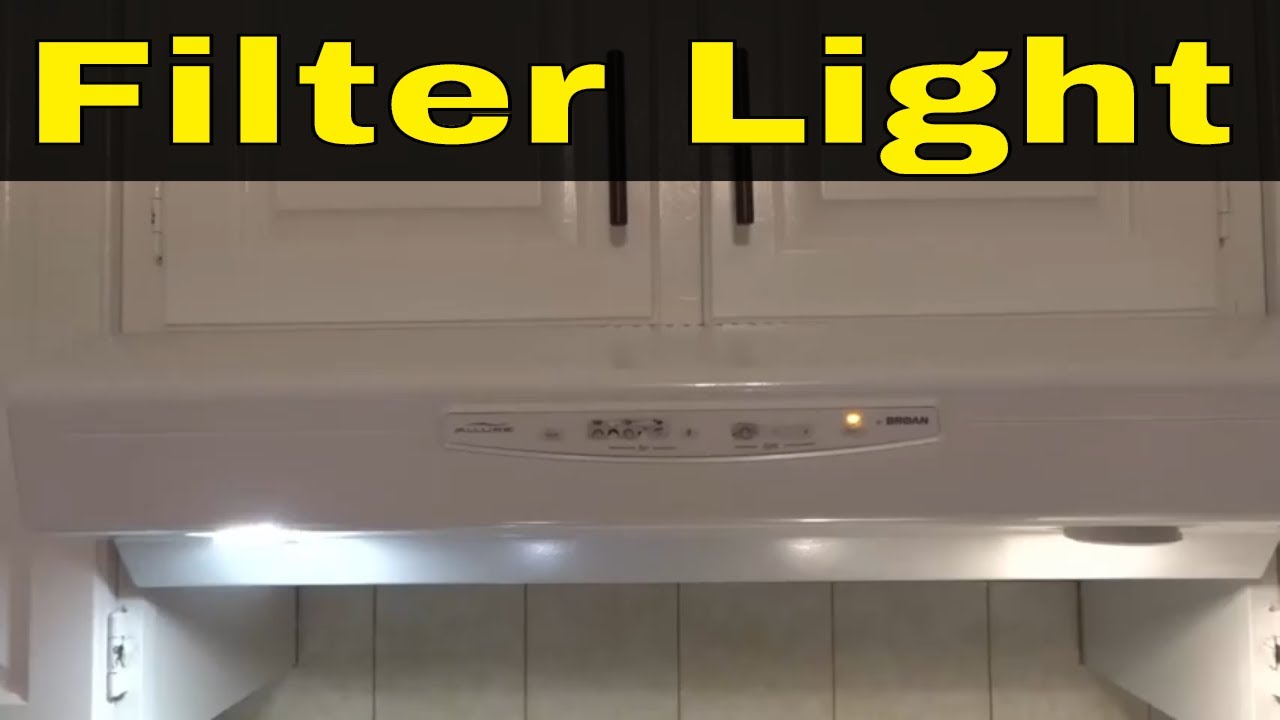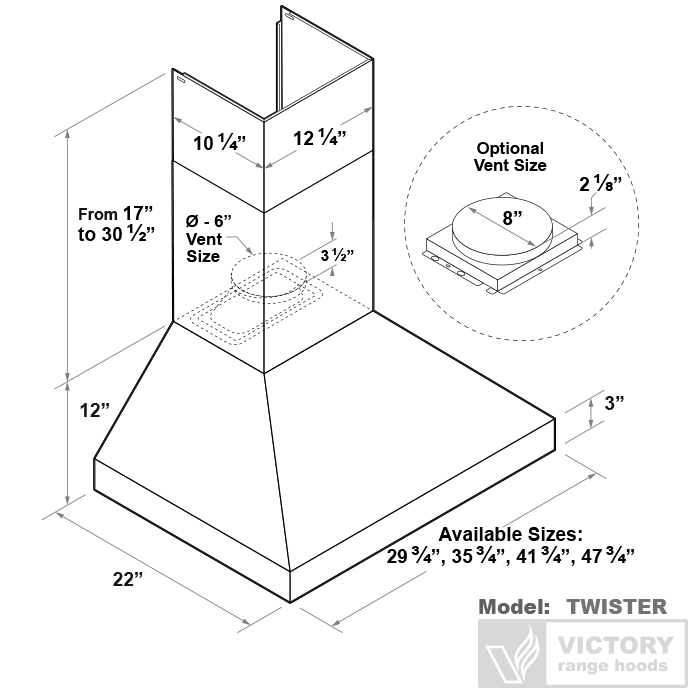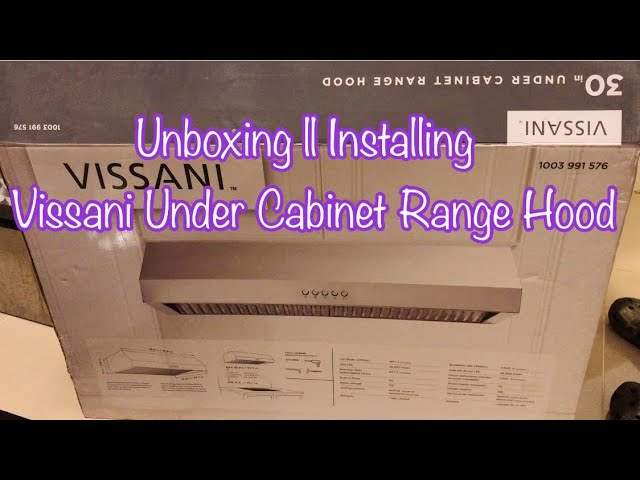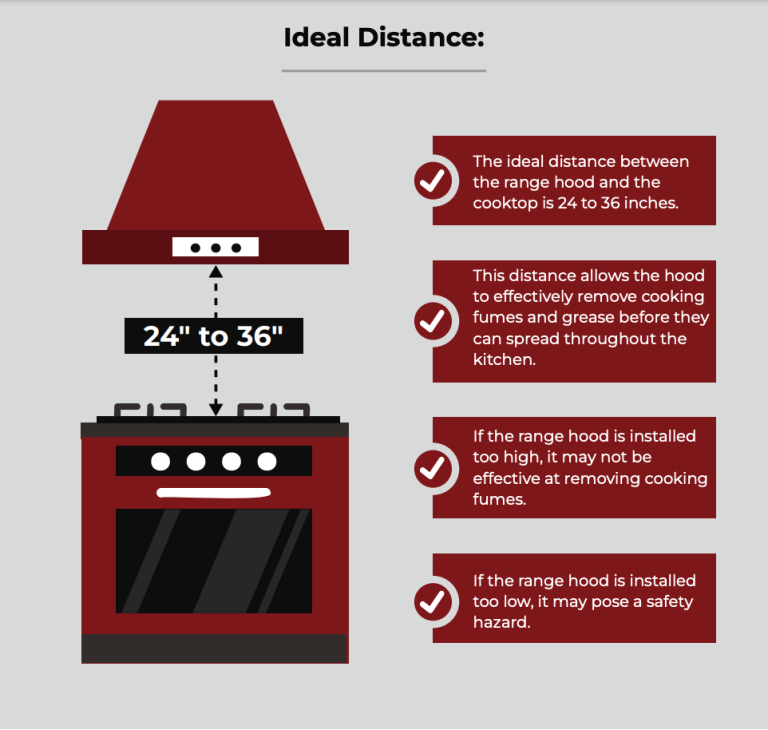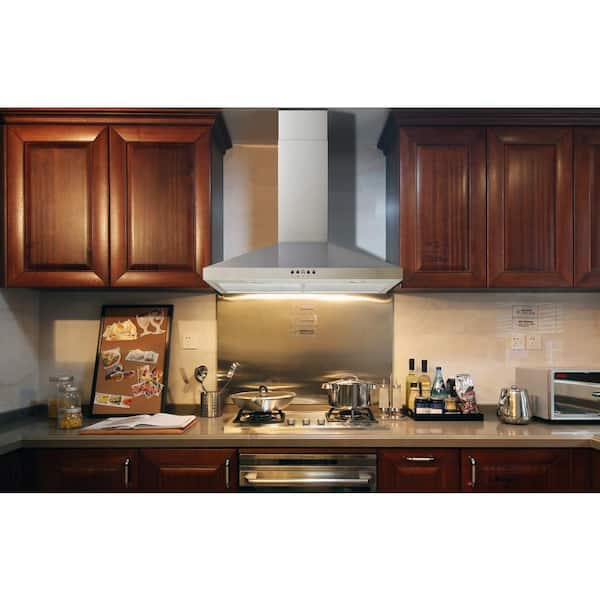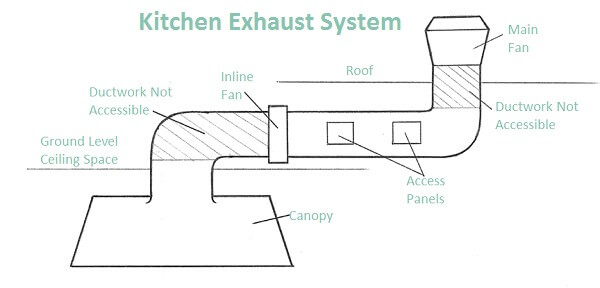Flashing lights on a range hood usually indicate a malfunction or bulb issue. Check the bulbs and connections first for any faults.
Range hoods are essential kitchen appliances that improve air quality by removing smoke and odors. A properly functioning range hood enhances cooking comfort and safety. However, issues like flashing lights can disrupt this experience. Understanding why the lights flash can help you troubleshoot effectively.
Common causes range from burnt-out bulbs to electrical problems. Ignoring these warning signs can lead to more significant issues down the line. Regular maintenance and prompt attention to unusual behaviors ensure your range hood operates efficiently. This guide will explore potential reasons for flashing lights and offer solutions to keep your kitchen environment pleasant and functional.

Credit: www.youtube.com
The Mystery Of Flashing Range Hood Lights
Flashing range hood lights can be annoying. Understanding the causes helps you fix them.
- Loose connections can lead to flickering lights. Check wiring for tightness.
- Burned-out bulbs cause lights to flash. Replace old bulbs with new ones.
- Voltage fluctuations affect light stability. Use a voltmeter to measure voltage levels.
- Faulty switches may cause irregular lighting. Inspect and replace switches if needed.
Safety is very important. Electrical hazards can arise if issues are ignored.
- Always turn off the power before inspecting.
- Wear insulated gloves to avoid shocks.
- Seek professional help for complex problems.
Initial Steps For Troubleshooting
To fix flashing range hood lights, start with a power cycle. Turn off the power supply for a few minutes. This can reset the lights and solve minor issues.
Next, check the user manual. It often has helpful tips for troubleshooting. Look for any specific instructions related to flashing lights. Follow them carefully to see if it helps.
Checking for loose connections is also important. Ensure all wires are tightly connected. A loose wire can cause the lights to flash.
Lastly, inspect for burnt-out bulbs. Replacing these might stop the flashing. Always turn off the power before changing bulbs.
Inspecting The Light Bulb And Socket
Check the light bulb first. A faulty bulb may cause flashing. Remove the bulb and inspect it for damage. Replace it with a new bulb if needed.
Next, examine the socket. Sometimes, it can be loose or dirty. Clean the socket gently with a cloth. Ensure the bulb fits snugly in the socket.
If problems persist, look for wiring issues. Damaged wires can cause lights to flicker. Consult a professional for any serious electrical concerns.
Electrical Connections And Wiring
Flashing lights in your range hood often mean problems with electrical connections. Loose wires can cause this issue. Check all connections carefully. Make sure each wire is tight and secure.
Use a screwdriver to tighten any loose screws. This can help prevent future issues. Always turn off the power before working on the range hood.
Some problems may be too complicated. If the lights keep flashing, a professional electrician can help. They can check for deeper wiring issues. Don’t hesitate to call for help if you feel unsure.
Control Board Complications
Flashing lights on a range hood may indicate control board issues. Common signs of a failing control board include flickering lights, unresponsive buttons, and strange noises.
Other signs are overheating and inconsistent fan speeds. Addressing these problems quickly can help prevent further damage.
| Sign | Description |
|---|---|
| Flickering Lights | Indicates unstable power supply or control board failure. |
| Unresponsive Buttons | Buttons do not function properly, hinting at internal issues. |
| Strange Noises | Unusual sounds may signal a malfunctioning control board. |
Resetting the control board can sometimes solve issues. Turn off the range hood and unplug it. Wait for 30 seconds before plugging it back in. This may restore normal function.
Dealing With Power Surges And Voltage Issues
Power surges can cause range hood lights to flash unexpectedly. These surges can happen due to lightning strikes or issues with the electrical grid. A voltage stabilizer helps maintain a steady voltage level. This device protects your appliances from damaging fluctuations in power.
Installing a voltage stabilizer ensures your range hood operates smoothly. It keeps the voltage within a safe range. This way, the lights won’t flicker or turn off suddenly.
Using surge protectors adds an extra layer of safety. They help absorb excess voltage from power surges. This protection can save both your range hood and your home from serious damage.
Maintenance Tips To Prevent Future Flashes
Regularly cleaning your range hood helps prevent flashing lights. Grease and dirt can build up over time. This buildup affects the hood’s performance.
Use a soft cloth and a mild cleaner. Focus on the filters and light fixtures during cleaning. Clean the filters at least once a month. This simple task can keep your lights shining bright.
Periodic professional inspections are essential. Technicians can find problems you might miss. They check the wiring and bulbs for issues. Schedule these inspections at least once a year. Proper maintenance can prolong the life of your range hood.

Credit: www.reddit.com
Advanced Troubleshooting Techniques
Multimeter testing helps find problems in range hood lights. This tool checks if electricity flows correctly. Start by turning off the power to the range hood. Next, set the multimeter to the voltage setting. Test the socket where the light connects. A reading of 120 volts means the power is fine.
Isolating and testing components can also help. Check the light bulb first. Replace it if it’s burnt out. Then, examine the wiring for damage. Look for frayed or loose connections. Tighten any loose wires carefully. If everything looks good, the switch may be faulty. Testing each part ensures you find the issue.
When To Consider A Replacement
Consider a cost-benefit analysis when deciding to repair or replace your range hood. Repairs can be cheaper upfront. However, frequent issues may lead to higher long-term costs. A new model often saves energy and improves performance.
Latest range hood technologies offer better efficiency and quieter operation. Features like LED lighting and smart controls enhance usability. Some models even include auto-sensors that adjust fan speed based on cooking needs. Investing in a modern unit can improve kitchen safety and convenience.

Credit: www.streivor.com
Frequently Asked Questions
Why Are My Range Hood Lights Flashing?
Flashing lights on your range hood often indicate a malfunction. This could be due to a faulty bulb, loose wiring, or an issue with the control board. Always check the bulbs first, then inspect the wiring. If issues persist, consult a professional for a thorough diagnosis.
How Do I Fix Flashing Lights On My Range Hood?
To fix flashing lights, start by turning off the power. Replace any burnt-out bulbs and ensure they are securely fitted. Check for loose connections in the wiring. If the problem continues, it may require professional servicing to address deeper electrical issues.
Are Flashing Range Hood Lights Dangerous?
Flashing lights can indicate electrical issues, which may pose a fire risk. If you notice unusual flickering, it’s essential to act quickly. Turn off the power to the unit and inspect it. If concerns remain, contact a licensed electrician for safety.
Can I Use My Range Hood With Flashing Lights?
Using your range hood with flashing lights is not advisable. It may indicate a malfunction that could worsen. Continuing to use the hood might lead to further damage or safety hazards. It’s best to resolve the issue before using the appliance again.
Conclusion
Flashing range hood lights can indicate various issues. Regular maintenance is key to preventing these problems. Check connections and bulbs frequently for optimal performance. If the issue persists, consult a professional for a thorough inspection. Keeping your range hood in top shape ensures a safe and efficient cooking environment.
